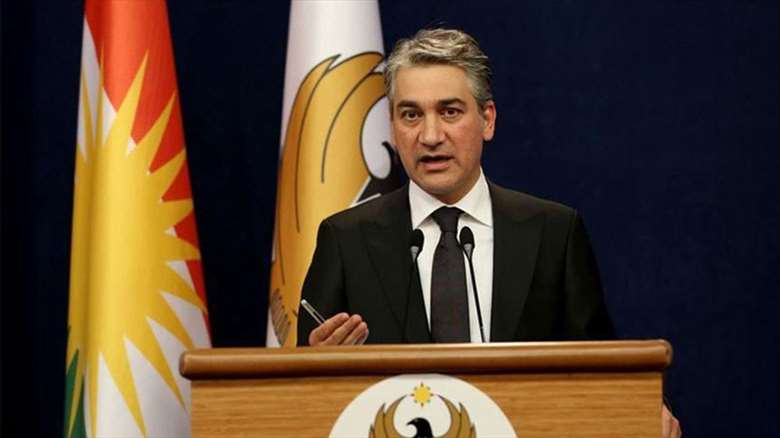KRG extends public holiday, works with Baghdad on return of citizens abroad

ERBIL (Kurdistan 24) – The Kurdistan Regional Government (KRG) on Saturday extended a public holiday until April 16 as part of anti-coronavirus measures to limit the rising number of COVID-19 cases in the autonomous region.
"As part of ongoing preventative measures against the spread of the coronavirus in the Kurdistan Region, it has been decided to extend the holiday period" in all public institutions and private education facilities till April 16, KRG spokesman Jotiar Adil KRG said in a statement.
Adil explained that the decision excludes the region's health and law enforcement departments who are taking active part in dealing with the public in regard to the highly-contagious disease.
Earlier in the day, the regional Health Ministry confirmed nine more COVID-19 cases as the total infections throughout Iraq, including those in the Kurdistan Region, topped 500. Late Saturday, the ministry reported three additional cases, bringing the regional total to 125.
Related Article: KRG announces 9 new COVID-19 cases; Iraq's total tops 500
The KRG also said on Saturday that it would continue to coordinate with the federal Iraqi government to facilitate the return of citizens from the region who are now abroad. Earlier KRG statements have announced efforts by both Erbil and Baghdad to bring back citizens who are outside Iraq on tourist or student visas.
"Citizens abroad are to abide by the health instructions of that country and must register their names in the nearest Iraqi embassy or consulate or the representation office of KRG if they wish to return," the statement added.
The KRG also encourages "citizens to do their utmost to remain in their current locations until these conditions pass because at these times, airports and airplanes have become the main source of transmitting the deadly COVID-19."
In addition to anti-coronavirus regulations declared by the federal government in Baghdad, the Kurdistan Region has enacted multiple strict precautionary measures as part of attempts to block the spread of the disease, including closing schools, declaring an extended public holiday for government employees, canceling all religious services and other public gatherings, and curfews across the region.
Over 657,000 people are confirmed to have contracted the virus in over 180 countries worldwide, according to data compiled by WHO. More than 30,000 have died, as per official numbers reported by governments around the world, though the rate could be dramatically higher in some instances due to underreporting.
Editing by Kosar Nawzad and John J. Catherine
